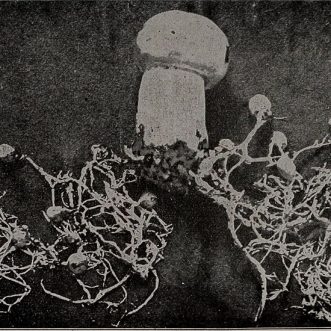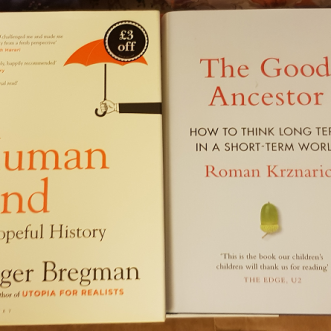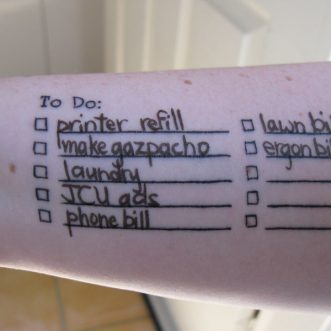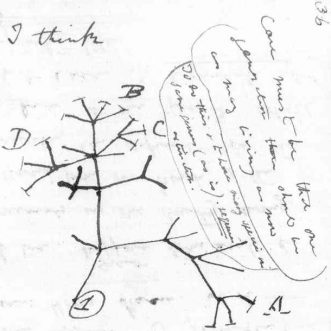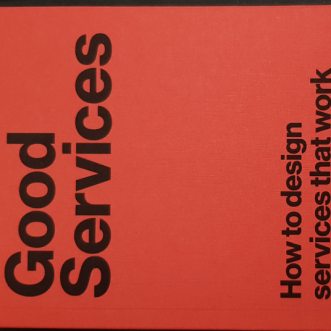
Good Service
My husband pointed me in the direction of this book, and I’m very glad he did. I’m not that far into it and my neck already aches from vigorous nodding in agreement.
On the face of it, this book might not seem appropriate for business that don’t make and keep their promises entirely online.
With a little twist in perspective, that can change:
On page 19, Lou gives this definition of a service: “A service is something that helps someone to do something.”
Our first thought is that the ‘someone‘ is the end user – me paying my car tax or filing a tax return online, via the gov.uk site. But what if that ‘someone‘ was one of your team? And the ‘something‘ they’re trying to ‘do‘ is share your promise so potential clients find it, or deliver on that promise to clients who’ve signed up?
What if you designed your business to be an eco-system of services that help your team do things for themselves? Without the need for supervision or management?
You’d want your ecosystem of services to follow all the principles for a good service:
- Easy to find
- Clearly explains its purpose
- Set a user’s expectations of the service
- Enable each user to complete the outcome they set out to do
- Work in a way that is familiar
- Require no prior knowledge to use
- Agnostic of organisational structures
- Minimum possible steps to complete
- Consistent throughout
- No dead ends
- Usable by everyone, equally
- Encourage the right behaviours from everyone
- Quickly respond to change
- Clearly explain why a decistion has been made
- Make it easy to get human assistance
And in the process deliver these qualities:
- It does what the user needs it to do, in a way that works for them
- It’s profitable and easy to run
- It does not destroy the world we live in, or negatively affect society as a whole
I would also add:
- Expresses and reinforces your Promise of Value at every turn.
Unlike the UK government, you’re not delivering to every citizen, but to people who share at least some of your values, behaviours and worldview, and they will want to see that reflected in the way you do things for them.
This is what I call a Customer Experience Score. The ecosystem that turns your small business into an orchestra, playing your unique music for the people you serve, with no need for supervision or management.
I’m going to explore all of these points over the next few posts or so, as I work out how to apply this for my own business and for my clients. I think you’ll find it useful. I hope you’ll find it enjoyable too.
Meanwhile, if you’d like to buy the book, you can order it from my favourite bookshop.
